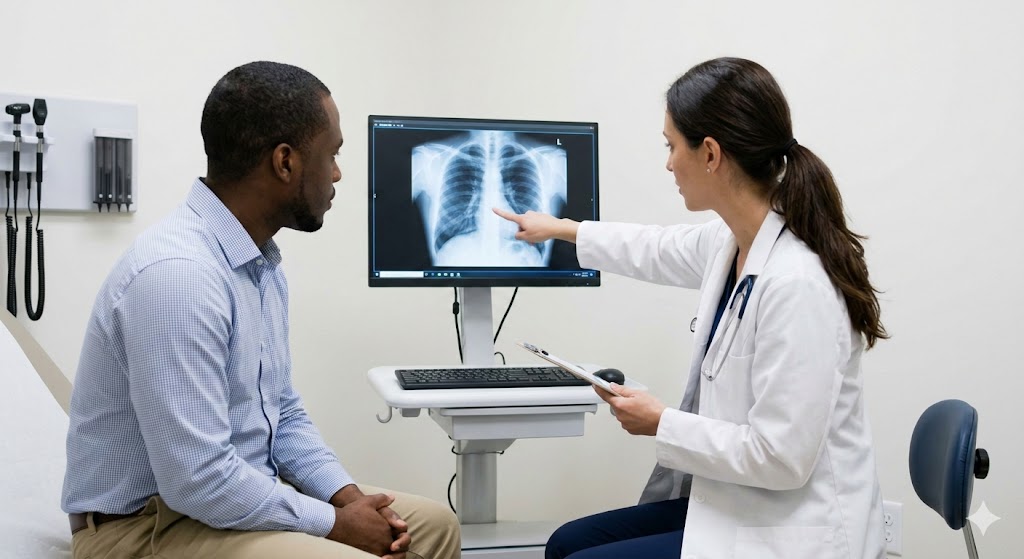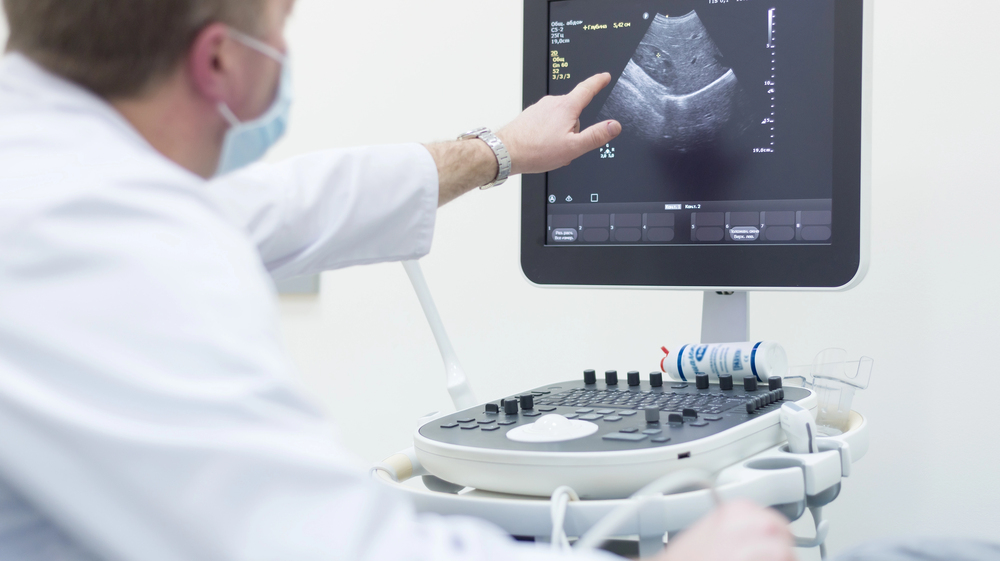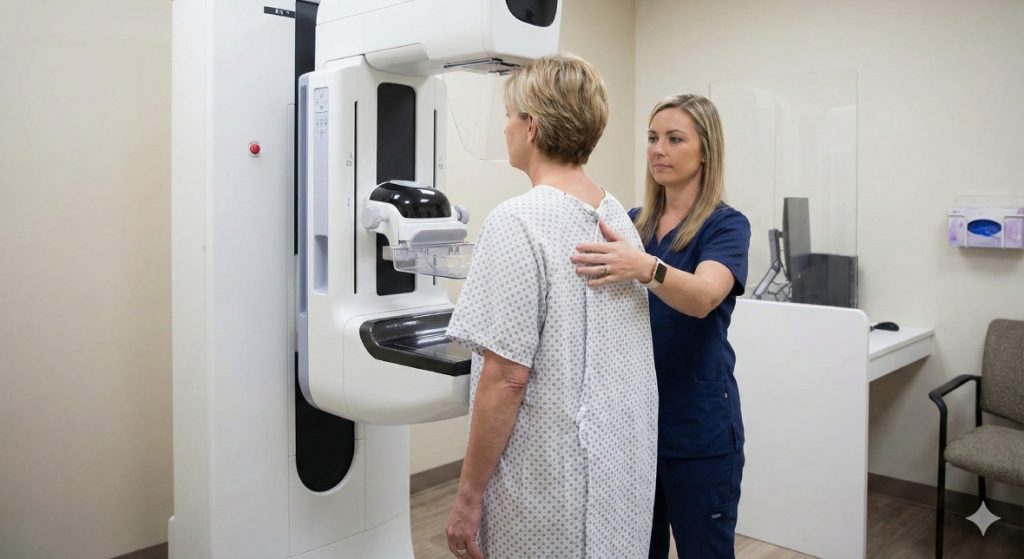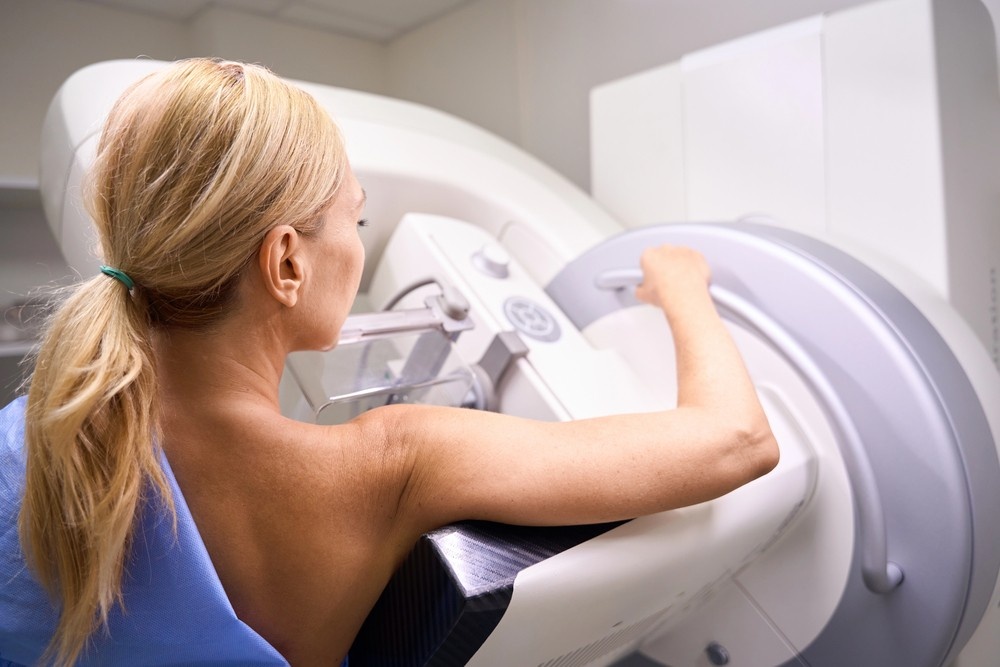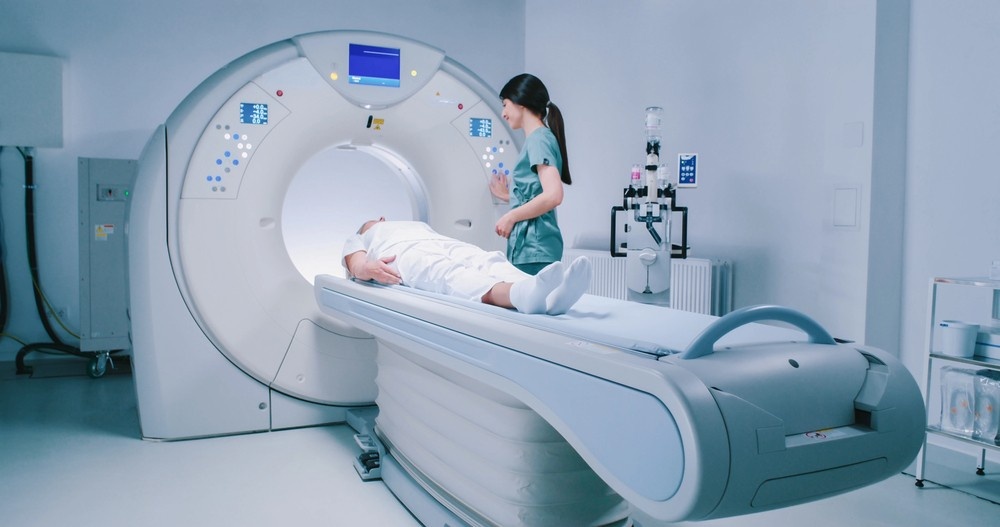How Long Does A Head CT Scan Take?
July 20, 2025
Need a quick, accurate look at what’s going on inside your head—literally? A head CT scan can do just that. But how long are you actually going to be in that scanner? Let’s walk through it all—from how long the scan itself takes to the prep and everything in between. We’ll also show you what to expect at NextGen Diagnostic Imaging, where speed, comfort, and precision go hand in hand.
What Is a Head CT Scan?
Quick Overview
A head CT scan (computed tomography scan) is a medical imaging test that uses X-rays and advanced computer technology to produce detailed images of your brain, skull, sinuses, and other parts of your head. Think of it as a digital peek into the inner workings of your brain—without a scalpel.
What It Shows
It’s commonly used to detect:
- Brain injuries
- Strokes
- Tumors
- Infections
- Skull fractures
- Swelling or bleeding
And the best part? It’s fast.
Why Would You Need a Head CT Scan?
Head Injury Evaluation
Let’s say you bumped your head hard. A CT scan helps doctors check for bleeding, swelling, or fractures right away—especially in emergency situations.
Stroke and Brain Bleeds
When someone shows signs of a stroke, time is everything. A head CT can quickly tell if it’s caused by bleeding (hemorrhagic stroke) or a blockage (ischemic stroke).
Detecting Tumors or Infections
CT scans help spot abnormal growths or infections like abscesses. These scans are often the first step before deciding if an MRI or biopsy is needed.
How Long Does a Head CT Scan Take from Start to Finish?
When you’re told you need a head CT scan, one of the first questions you’re probably asking is: How long is this going to take? The good news is, it’s one of the fastest imaging procedures out there—and at NextGen Diagnostic Imaging, we streamline the entire experience without sacrificing quality or care.
Let’s break it down step by step: from the moment you walk in the door to when you’re ready to leave.
The Actual Scan Time
CT Scan Speed Is One of Its Biggest Advantages
The head CT scan itself typically takes only 5 to 10 minutes. In most cases, the part where you’re actually in the scanner is over before you know it.
Here’s how it works: once you’re positioned correctly on the scanning table, the motorized bed slowly moves your head through the CT scanner, which looks like a large donut. Inside that ring, a rotating X-ray tube captures cross-sectional images of your head from multiple angles. These are then assembled by a computer to create a complete view of your brain, skull, and surrounding structures.
You won’t feel a thing during the scan, although you may hear whirring, buzzing, or clicking sounds from the machine as it does its job. The important part is staying very still during this time—any movement could blur the images, requiring repeat scans.
In emergency cases—such as trauma or suspected stroke—this speed is literally lifesaving. Doctors can make fast decisions based on real-time imaging within minutes.
Prep Time Before the Scan
Why Prep Takes Longer Than the Scan Itself
While the scan might be fast, the prep process adds a bit of time. If you’re scheduled for a non-contrast head CT, you can typically expect 10 to 15 minutes of preparation before the scan begins. Here’s what that usually involves at NextGen Diagnostic Imaging:
- Check-In & Paperwork: If it’s your first time visiting, you’ll need to fill out some forms. Bring your insurance card, ID, and any doctor referrals or imaging orders.
- Review of Medical History: You’ll be asked about previous conditions, medications, allergies (especially iodine allergies if contrast might be used), or if there’s a chance you could be pregnant.
- Changing into a Gown: While many head CTs don’t require a full change, any metal—like jewelry, eyeglasses, hairpins, or hearing aids—must be removed. You may be asked to wear a medical gown, especially if you’re wearing anything with zippers, snaps, or embedded metal.
- Positioning on the Table: The technologist will help you lie flat on your back with your head snugly positioned in a special headrest to reduce movement. They’ll place a soft strap across your forehead to help keep your head steady.
- Brief Instructions: You’ll get a quick explanation of what’s about to happen and how long it will take. They might remind you not to speak or move during the scan.
Altogether, this stage usually takes around 10–20 minutes, depending on how smoothly things go and how busy the imaging center is. At NextGen Diagnostic Imaging, we pride ourselves on staying on schedule and minimizing your wait time.
Post-Scan Procedures
What Happens After the Scan Ends?
Once the scanning is complete, you might expect to be out the door immediately. And in many cases, that’s true! However, certain factors may affect how long you’ll need to stick around afterward.
Here’s what happens post-scan:
- No Contrast? You’re Free to Go
If your scan was done without contrast, there’s nothing more you need to do. The technician will help you off the table, and you’re free to resume normal activities. No recovery time needed, no restrictions. - Had Contrast Dye? A Little Monitoring First
If your CT scan included contrast dye, typically injected through an IV in your arm, you’ll be asked to wait 15–30 minutes after the scan. This monitoring period is just a precaution, to ensure you don’t have an allergic reaction or side effects like dizziness or nausea. These are rare, but it’s always better to play it safe. - Hydration Instructions
You’ll likely be advised to drink plenty of water over the next few hours to help flush the contrast dye from your kidneys—especially if you have diabetes or a history of kidney problems. - Quick Debrief and Next Steps
The tech may give you a quick overview of what happens next, including how and when your doctor will receive your scan results.
In total, post-scan procedures can take anywhere from 5 to 30 minutes, depending on whether contrast dye was used and your individual response.
Total Estimated Time
So how long should you plan to be at your appointment from start to finish? Here’s a helpful breakdown:
For a Non-Contrast Head CT Scan:
- Check-in, prep, and paperwork: 10–15 minutes
- Scan time: 5–10 minutes
- Post-scan: 5 minutes (or less)
Total time: About 20–30 minutes
For a Contrast-Enhanced Head CT Scan:
- Check-in, prep, and IV setup: 15–20 minutes
- Scan time: 5–10 minutes
- Post-scan monitoring: 15–30 minutes
Total time: Around 30–60 minutes
Of course, these are general timeframes. If you’re visiting NextGen Diagnostic Imaging, we aim to keep your total visit time as short as possible while ensuring everything is done correctly and safely.
We use advanced multi-slice CT scanners, which are among the fastest and most accurate available today. That means less time in the machine and more time back to your routine.
Bonus Tip: Arrive Early to Stay Ahead
We recommend arriving 10–15 minutes early to avoid delays, especially if it’s your first time or if you’re having a contrast scan. Early arrival helps everything stay on schedule—and gives you a chance to ask any last-minute questions.
Also, wear comfy clothes and leave jewelry at home to speed up the prep process. The fewer items you need to remove, the quicker everything goes.
Factors That Can Affect Scan Duration
Emergency vs. Scheduled Appointments
Walk-ins or emergency scans may feel longer due to triage and urgency. Scheduled scans usually run on time, especially at organized centers like NextGen Diagnostic Imaging.
Use of Contrast Dye
Some scans require contrast dye to highlight blood vessels or abnormal tissue. If this is needed, an IV will be placed, and the dye injected—adding 10 to 20 minutes to your appointment.
Patient Condition and Cooperation
Movement during the scan can blur images. If you’re unable to stay still (due to pain, anxiety, or medical conditions), the process might take a little longer.
What Happens Before the CT Scan?
Arrival and Paperwork
Arrive 15 minutes early, bring your ID and insurance info, and check in. The front desk at NextGen Diagnostic Imaging will guide you through the paperwork.
Pre-Scan Questions
The technician might ask about:
- Allergies (especially to iodine if contrast is needed)
- Medical history
- Pregnancy status (for women)
- Current medications
Changing into a Gown
You may need to remove metal items and change into a hospital gown—especially for head or neck scans.
What to Expect During the CT Scan
The Scanning Process Step by Step
- You lie flat on a motorized table.
- The table slides into a large, donut-shaped machine.
- The scanner rotates and captures images of your head.
- You may hear buzzing or clicking.
- Stay still—movement can mess up the scan.
What You’ll Feel and Hear
Most of the time? Nothing. If you’re getting contrast, you might feel a warm sensation or a metallic taste. That’s normal and goes away quickly.
How Safe Is a Head CT Scan?
Radiation Exposure
CT scans use more radiation than standard X-rays but are considered safe, especially for short-term, diagnostic purposes. NextGen Diagnostic Imaging uses the lowest radiation dose possible to get accurate images.
When Contrast Dye Is Used
Contrast dye is generally safe. Some people might feel flushed or slightly nauseated, but severe reactions are extremely rare. Let your tech know if you’ve had issues with contrast before.
How to Prepare for Your Appointment at NextGen Diagnostic Imaging
Tips for a Smooth Visit
- Drink water beforehand.
- Arrive 15 minutes early.
- Wear comfy clothes.
- Bring a list of your medications.
Special Instructions for Contrast Scans
- You may be asked not to eat for 4 hours before the scan.
- Let the team know about kidney problems or diabetes—these can affect how your body handles contrast dye.
After the Head CT Scan: What’s Next?
Waiting for Results
A radiologist will review your scan and send a report to your doctor. At NextGen Diagnostic Imaging, results are usually available within 24–48 hours, often sooner for urgent cases.
Follow-Up Instructions
You can typically resume normal activities right after. If you had contrast dye, drink plenty of water to help flush it out of your system.
Head CT Scan vs. MRI: What’s the Difference?
Speed Comparison
CT scans are much faster. An MRI can take 30–60 minutes, while a head CT takes under 10 minutes.
Detail and Purpose Differences
- CT is great for trauma, bleeding, and fractures.
- MRI is better for detailed images of soft tissues like brain tumors or nerve issues.
NextGen Diagnostic Imaging Serving the Shenandoah Community and Beyond in Houston
NextGen Diagnostic Imaging is dedicated to serving the diverse needs of the local community of Houston, including individuals residing in neighborhoods like Shenandoah. With its convenient location near landmarks such as The Harris School and major intersections like Hillcroft Ave. & Westward St. (coordinates: 29.712207491970396, -95.4938099), we offer cheap ct scans Houston services.
Get Cheap CT Scans Houston Services at Shenandoah Now
Navigate from Shenandoah to NextGen Diagnostic Imaging Now
Speed and Accuracy Matter
How long does a head CT scan take? Just minutes for the scan itself—less than an episode of your favorite TV show. But the real value lies in how quickly it delivers critical information that could save lives.
At NextGen Diagnostic Imaging, we prioritize speed, safety, and expert care so you can get in, get out, and get answers.
FAQs
1. Can I drive after a head CT scan?
Yes, unless you received a sedative or experienced a reaction to contrast dye. Most people can drive themselves home right away.
2. Do I need to fast before a head CT scan?
Only if contrast dye is used. Your provider will give you instructions in advance.
3. How long do results take to come in?
Typically within 24–48 hours. Urgent scans may be read much faster.
4. Does a head CT scan hurt?
Not at all. It’s completely painless, though the table can be a little cold or stiff.5. Is a CT scan safe for children?
Yes, when medically necessary. Pediatric CTs use reduced radiation tailored to a child’s size and age.

NextGen Scan

Contact Us: We’re Here to Help!
We’d love to hear from you! Whether you have questions about our services, need more information on our diagnostic and pain management options, or would like to schedule an appointment, our friendly and professional team is here to assist you every step of the way. We are dedicated to providing you with the best care and support, and we are happy to address any concerns or inquiries you may have.

